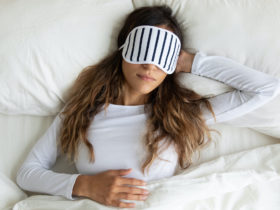So many people are dealing with high levels of stress, brain fog, or increased pandemic related fatigue. As summer begins to wind down, you have the perfect opportunity to reset your health.
Spending more time at home has provided many of us with an opportunity for frequent snacking, stress eating, and experimental baking. Grazing throughout the day or late-night meals can set you up for long-term health complications such as inflammation, blood sugar imbalances, and weight gain. These complications can lead not only to poor metabolic health (weight gain) but also symptoms that manifest as brain fog, fatigue, and sluggishness.
Recent evidence reveals that poor metabolic health is a risk factor for serious complications and poor outcomes with COVID-19. So getting your health back on track is more important than ever.
The good news is, you have the power to balance your hormones, fight inflammation, and tap into anti-aging benefits (fountain of youth, anyone?) all on your own.
No supplements necessary.
Fasting: the Secret to Better Health
Research shows that restricting meal times to a shorter window (aka fasting) is beneficial for reversing many of the above complications and improving overall metabolic health.
Physiologically, our bodies are designed to sustain periods of not eating. Evidence is indicative of favorable effects on longevity, inflammation, and insulin resistance with periods of fasting.
How Long Should You Fast?
Fasts do not have to be long-lasting (or difficult) to offer health benefits.
There are so many ways to get started with fasting. Various lengths of fasts can have different effects on the body. Generally, eating earlier in the day is better. You can gain a lot of benefit from a 12 hour fast. Make sure you check with your physician to see if this is an option for you. Start off by being mindful of your eating choices. Try to hone in on if you are reaching for excess snacks or stress eating.
Pro Tip: 12 hours of a fast may sound intimidating at first. BUT sleeping counts towards your fasting window. If you finish dinner by 6:30 pm and you have breakfast by 6:30 am you will have successfully completed a 12 hour fast!
3 Easy Steps to Get Fasting
- Plan for waiting twelve hours between finishing dinner & eating breakfast
- Make sure dinner is at least 3 hours before bedtime
- No snacking after dinner! Water and herbal tea are okay.
There are wonderful apps that can help you keep track of your fasts, or even fast with a large fasting community. Taking the steps above is an excellent opportunity to reclaim your health and support your body during the pandemic.
Dr. Ghouse is a board-certified Family Physician with extensive advanced specialty training in Integrative, Functional, and Lifestyle Medicine. She is a Culinary Medicine instructor and is passionate about addressing health care disparities and making health and wellness accessible to all. Connect with her on her website at www.drglifestylemed.com or on Instagram at @Doctor.Ghouse











Join the GloWell Community on Social!
Don't risk missing a single thing. Follow us on social and become part of the GloWell community.